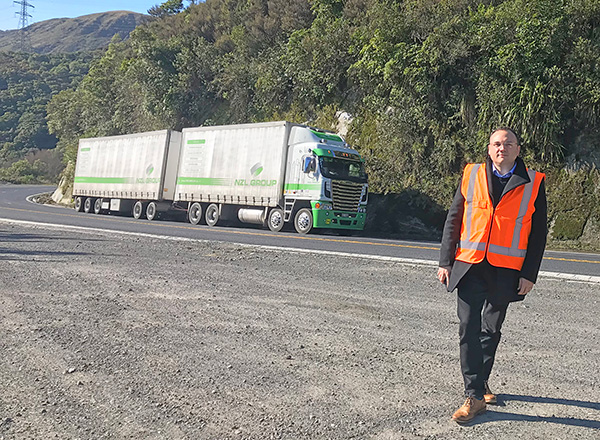Ia Ara Aotearoa Transporting New Zealand chief executive Nick Leggett says Omicron absences have created supply chain gaps prompting a search for truck drivers.
Some primary sector processors have access to only half their usual workforce due to staff infected with Omicron or isolating because they are a close contact.
Staff shortages have forced meat plants to reduce throughput or shut down chains, truck companies to plead for extra drivers and disruption to dairy processing and the grape harvest.
Rural health leaders are nervous medical staff will be next to face disruption as the Omicron wave moves down the country.
Jeremy Webber, the clinical director of Rural Health with the Rural GP Network, is urging the public to get boosted, stay at home if ill and take precautions to avoid medical services being overwhelmed.
“We will soon lose clinical staff because they will test positive and be out for seven days or they will be required to stay home to care for children.”
The Omicron outbreak in Northland and Auckland saw St John ambulance calls increase 25% at a time 35% of their staff were affected by the virus, he says.
The impact is affecting farmers on multiple levels.
AgriHQ senior analyst Mel Croad says a poor North Island spring slowed stock conditioning then staff shortages in meat plants slowed processing and now Omicron is biting.
For the 20 weeks up to 19 February, 585,000 fewer lambs were killed in the North Island and 96,000 fewer in the South Island compared to a year earlier.
BLNZ is forecasting an 18.3m export lamb kill this year, but to 19 February 7.7m have been killed.
Croad says the season looks similar to 2018 which was also late.
“Farm gate prices are still high which will help offset those delays and feed supplies are generally good which will help farmers navigate this period.”
Meat Industry Association chief executive Sirma Karapeeva says processors have tried to mitigate the impact of Omicron.
This includes moving livestock to other plants so animals are processed as quickly as possible, extending processing seasons, reconfiguring their shifts, reducing carcass cuts and increasing minimum hourly rates to attract new employees.
“Fortunately, recent rain has alleviated feed concerns in most parts of the country, although there are some dry areas in regions such as Southland and Northland.”
Silver Fern Farms chief supply chain officer,Dan Boulton says absenteeism was an issue in North Island plants but has now eased but is affected plants in the south, especially Finegand in South Otago.
“Our other South Island sheep and beef plants should be getting closer to normal by the end of next week.”
The sheep backlog in the North Island should ease within the next two weeks.
He says previous indications of processing wait times are still current at six to eight weeks for beef, two to six weeks for sheep and two to four weeks for venison.
Alliance chief executive David Surveyor says absenteeism from Omicron was an issue in its North island plants, but capacity there is starting to recover.
“We are doing everything we can to mitigate the impact of the situation including consolidating day and night shifts and moving livestock across our network to maximise our processing volumes.”
Fonterra chief executive Miles Hurrell said Covid-19 remained a challenge causing supply chain disruptions as well as forcing its staff to isolate.
“There’s no question that Omicron has hit our staff as most NZ businesses are experiencing.
“That said, the teams have gone above and beyond and have got products either on vessels for international markets or into the domestic market here.”
Ia Ara Aotearoa Transporting New Zealand chief executive Nick Leggett says Omicron absences have created supply chain gaps prompting a search for truck drivers.
“Now, more than ever, we need every available truck on the road delivering to supermarkets, pharmacists, hospitals, doctors, and everyone else who requires goods to get through this challenging time.”
NZ Wine chief executive Philip Gregan says Omicron has accentuated an existing labour shortage, with some grape growers having half their harvesting workforce unavailable due to Covid.
“The industry is following similar processes to the first lockdown, with separate teams and bubbles to reduce the chance of spread and to keep people safe.”










